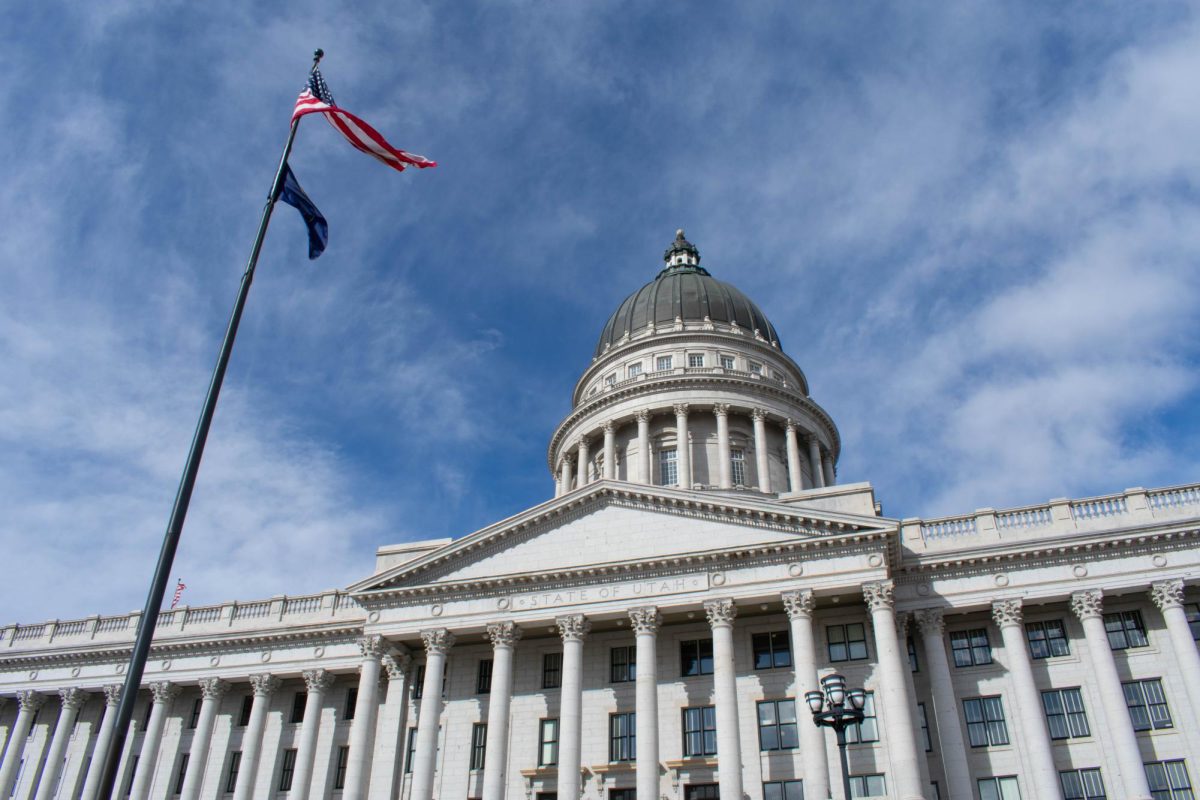As Utah’s 2025 legislative session is underway, bills curtailing federal influence on public lands, barring collective bargaining and banning fluoride in public waters are only some of the issues being addressed by lawmakers this year.
Public lands management is expected to be a key issue lawmakers will address after the U.S. Supreme Court rejected Utah’s lawsuit to put federal lands under the Beehive State’s control.
So far, one environmental-related bill and one resolution have been introduced on the capitol floor. These are H.B. 47 and S.C.R. 3, which both aim to reduce federal influence within their respective areas.
Public Lands Watering Rights Amendments
H.B. 47, introduced by Rep. Carl Albrecht, (R-Richfield), seeks to address and protect livestock watering rights on public lands. This would limit the federal government’s influence over rancher rights.
The bill updates definitions and processes for livestock watering rights, repeals outdated provisions and outlines conditions for recognizing claims under Public Water Reserve No. 107, a federal rule governing water reserves since 1926.
Key provisions include prohibiting federal agencies from acquiring water rights unless ranchers explicitly consent and allowing beneficial users, such as grazing permit holders, to apply for livestock water use certificates. The certificates formalize water rights tied to grazing allotments and remain valid if the water is used or covered by a nonuse application.
The legislation also addresses situations where federal agencies reduce grazing permits, ensuring ranchers can retain affected water rights through nonuse applications. Additionally, the state engineer is tasked with reviewing and processing claims and certificates electronically, simplifying access for ranchers.
If passed, this bill would take effect on May 7, 2025.
Utah’s Authority to Determine Its Energy Future
The Concurrent Resolution Regarding Utah’s Authority to Determine its Energy Future, sponsored by Sen. Wayne Harper (R-Salt Lake) and Rep. Albrecht, seeks to reaffirm Utah’s authority to determine its own energy policies and limit federal influence in energy regulation within the state.
S.C.R. 3 argues for the Tenth Amendment’s reservation of powers to the states. It asserts that Utah is best positioned to make energy decisions based on its unique geography, resources and economic needs.
The resolution highlights the state’s role in shaping energy policies that affect local economic development and environmental protection and public health. It calls on the federal government to defer to state authority on energy projects and limit its regulatory scope to interstate commerce and national security matters.
Additionally, the resolution urges Congress to pass legislation requiring federal agencies to consult with the State of Utah before implementing energy-related regulations and to create formal mechanisms for state input in federal energy decisions.
The resolution is currently under review by the Senate Rules Committee.
Public Sector Labor Union Amendments
A bill to bar collective bargaining between public employers and labor unions was approved by the House Labor Committee with a 11-4-0 vote on Jan. 23.
If H.B. 267 is passed into law, public employers could only negotiate with union representatives.
Most of the state’s unionized collective bargaining happens in education, according to bill sponsor Republican Rep. Jordan Teuscher (R-South Jordan). He said during committee the bill would help ensure all workers’ voices are heard in the bargaining process, but the bill has already received pushback from public educators and students.
Fluoride Amendments
Utah’s public water systems could go fluoride-free if lawmakers vote in favor of H.B. 81.
Rep. Stephanie Gricius, (R-Utah), the bill’s sponsor, told ABC4 it’s meant to standardize how people intake fluoride.
The bill would ban adding fluoride to public water systems and bar local governments from enforcing ordinances that allow for its use. It would also require the Department of Health and Human Services to issue prescriptions for fluoride supplements.
Murdered and Missing Indigenous Relatives Amendments
H.B. 125 would carry on the efforts of the Murdered and Missing Indigenous Relatives Task Force. Originally created in 2020, the task force has worked with native tribes to better understand and improve upon injustices that disproportionately impact their communities. This includes creating protocols, directing community outreach and finding best practices for investigations of murdered and missing Indigenous individuals.
In 2023, the task force reported that American Indians and Alaska Natives account for over 5% of all murder victims in Utah despite making up 1.5% of the population.
Time Change Amendments
Utah lawmakers want to give daylight savings the boot and stick with standard time year-round.
The House Government Operations Committee approved H.B. 120 on Jan. 22 and will now go on to the full house for debate.
Bill sponsor Rep. Joseph Elison (R-Toquerville) said the majority of Utahns are tired of moving their clocks twice a year. He said he doesn’t prefer standard time over daylight time, but it would take federal action to move to daylight time.
If the bill passes, the change would take effect Jan. 1, 2026.
Cannabis Amendments
H.B. 203 seeks to amend medical cannabis regulations. It would create new licenses for independent medical cannabis pharmacies but curb the number of licenses the Department of Agriculture and Food can issue for processing facilities.
The bill also addresses advertisements for medical cannabis pharmacies, prohibiting individuals from advertising discounts, medical outcomes or specific products. However, advertisements for name and logo, location and hours and educational material would be allowed.





